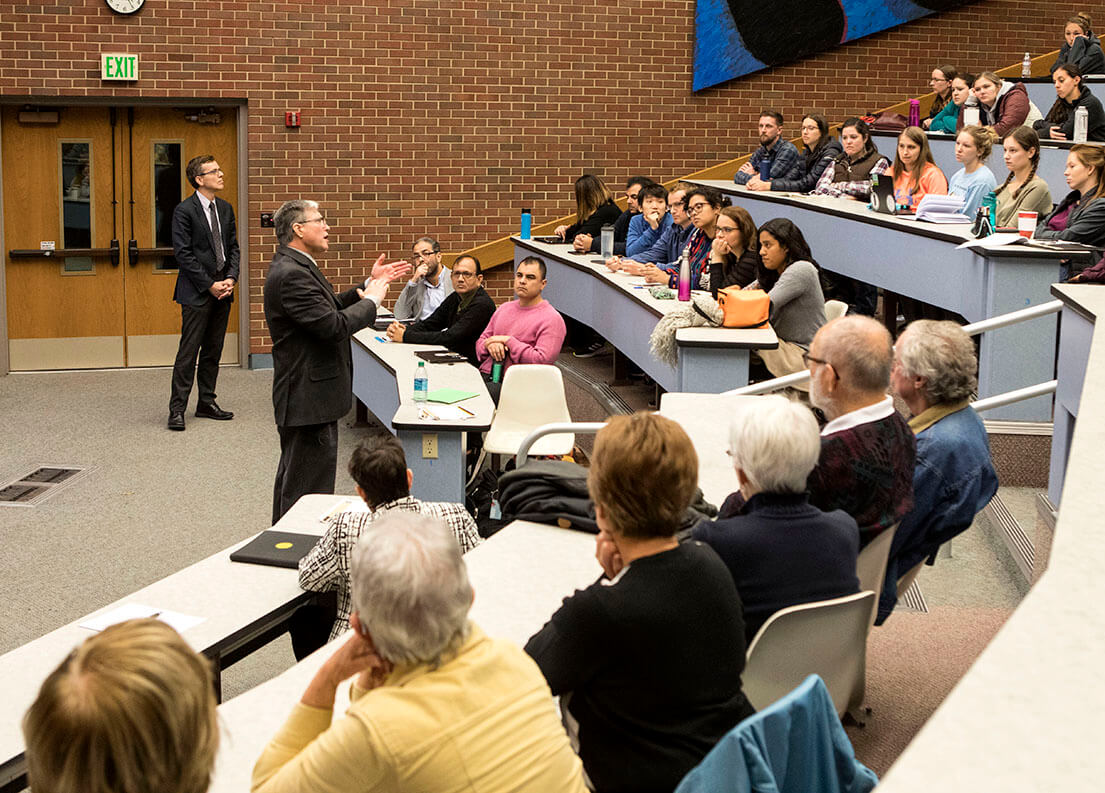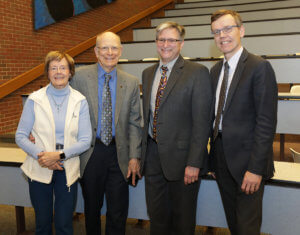
Entitled, “Antimicrobial Stewardship and One Health,” the 2018 Coppoc One Health Lecture by Dr. Jeff Bender, a veterinarian and public health practitioner with over 20 years of experience, drew a capacity crowd in Lynn 1136 Thursday, November 1. Dr. Bender is a professor in the Division of Environmental Health Sciences at the University of Minnesota School of Public Health and director of the USAID One Health Workforce Project.
The topic of the lecture is something that Dr. Bender is passionate about and now is dealing with on a broad scale, as he serves as the One Health Workforce Project director. His visit to Lynn Hall came between trips to Africa and Asia. Dr. Bender explained that a One Health workforce fosters a multi-sectoral approach to infectious disease prevention, detection and response and features collaborative engagement, technical competence and an enabling environment.

(Right-left) PVM Associate Dean for Research Harm HogenEsch with 2018 Coppoc One Health Lecture speaker Jeff Bender and Dr. Gordon Coppoc and his wife Harriet.
Dr. Bender’s expertise focuses on epidemiology, infection control and prevention, designing and evaluating surveillance programs, and development of educational outreach programs. He has researched zoonoses and emerging diseases, food safety, antimicrobial resistance, infectious disease surveillance, and infection prevention and control. His research is multidisciplinary, requiring collaborations with government, industry, and commodity organizations.
Dr. Bender concluded his talk by emphasizing the need to encourage good antimicrobial stewardship practices; understand the interrelationships between humans, animals and the environment; and encourage the One Health approach. He added the veterinarian’s play a very important role.
The Coppoc lecture was recorded in its entirety. Click here to view the presentation.
This is the 5th year for the Coppoc One Health Lecture, which was established as an annual campus-wide lectureship focusing on the symbiotic relationship between veterinary and human medicine and its worldwide impact. The lecture is named in honor of Dr. Gordon Coppoc, Purdue professor emeritus of veterinary pharmacology, and his wife, Harriet. Dr. Coppoc is the former head of Purdue Veterinary Medicine’s Department of Basic Medical Sciences and served as director of the Indiana University School of Medicine-Lafayette and associate dean of the Indiana University School of Medicine before retiring in 2014. Dr. Bender’s talk was followed by a reception in the Continuum Café.
